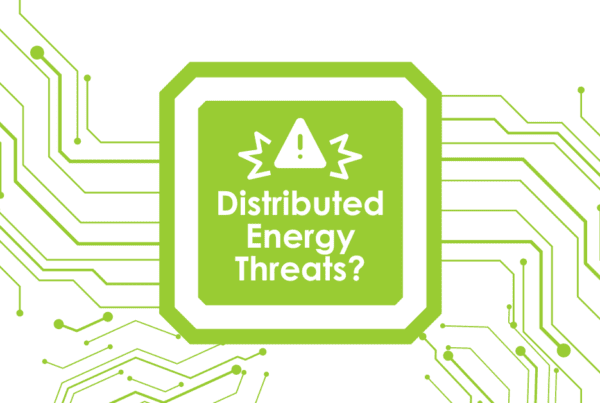Montana, Theisman, McMahan, Simms, Aiken, Young, Favre, Elway, Brady, Johnson, Rothleshamburglar, Manning, Manning, Brees, Rodgers. Connection? If you know anything about football, you know these guys are quarterbacks, and probably know they all won a Super Bowl or three. If you don’t know anything about football, I commend you and I’ll get this prelude out of the way quickly.
Virtually no team has won the Super Bowl with a mediocre quarterback. The only one I can think of is the Baltimore Ravens, somewhere around 2000. After looking it up: Trent Dilfer. How did this miracle occur? They played the Giants. Quarterback: Kerry Collins. Who the?
I conclude with 19:1 odds, at least, if an NFL team has a crappy quarterback, they have no chance of winning the Super Bowl and if you have no chance at the Super Bowl, what’s the point? Enter, the Minnesota Vikings, or as I’ve referred to them for 20 years, the Vi-Queens. They haven’t had a “franchise” quarterback since Tarkington and he was washed up (like Favre for the past 10 years – yes, going back deep into the Packer days) when I first knew anything about football.
This year I learned the Queenies acquired Donavan McNabb, who was at best mediocre in his prime but that was eight years ago. For a few more laughs see a more complete list of buffoons that have directed the Queenie offense to failure, see Wikipedia.
I’m just a schmo, having rather loosely watched 30 years of the NFL and I’m thinking, who are the idiots running the Queenies organization and why bring on a nag like McNabb? Unless a team has a very good quarterback or a youngin with potential to become one, and they want to win a championship, just forfeit the season and go fishing, hunting, or make some rap music.
But this isn’t a rant about football only. It’s a rant about decision making. Decision making has long been one of my great interests and one that anyone marketing energy efficient products and efficiency services should obsess over.
I haven’t yet read any books on the subject but I can speak from experience and maybe some other media nuggets packed away in the attic of my brain.
Decisions may more often be irrational than rational. In order to sell, if one only targets the rational they are leaving at least 50% of the market go. Consider fans of iPhone, which was one of the great tech breakthroughs of my life, but they are now relying on the irrational. The iPhone has pretty well matured and Apple needs to think of some other platform because they only have about another irrational iPhone release, maybe two before cult status wears out. This time they added the Siri gimmick, a Hal 9000 wannabe. This reminds me of Merlin from 1978 or the magic eight ball. Imagine iPhone 4S users sitting in a closet in their home getting their kicks out of asking, “Siri, how many gallons of water are in the Pacific Ocean?” “Siri, who was the MVP of last year’s World Series?” “Siri, what is the name of my spouse?”
Here are some examples and reasons people make irrational decisions:
- Knowingly having more tax withholding than necessary so they get a check from the Treasury in the spring. News: you are getting your own money back. Why not just stuff an Andrew Jackson in the back of your T-Shirt drawer so in 12 years when you move, you are pleasantly surprised to “find” $10? Think of the thrill!
- Which brings me to the next one, people will take an immediate pittance in money in lieu of good odds of getting much more money later. This is a big barrier for EE, except free riders. Does the customer see a prebate as buying down the extra cost (I don’t think so) or, surprise (!) you have just found an Andrew Jackson?
- Buying insurance you don’t need. Insurance is for a loss you could not afford, period. My mother finally surrendered at getting me to buy life insurance. Why do I need that? If I die, nobody is going to be in dire straights. I should get it because it’s cheap when I’m 25, single, young, and healthy, and did I mention free, as in no commitments, like say, offspring. People also buy accidental life insurance or flight insurance; as if you are killed in a plane crash is more harmful to survivors than a slow death by leukemia. In fact, it’s actually LESS financially draining than a slow death. Think about it – even though most people don’t like to.
- One more on insurance and I’ll quit. People pay dearly for lower risk than they need. Take shipped goods. You always have to ask yourself, what is the worst that could happen? Lose it all, obviously. The physical content is almost never worth insurance, even if it’s worth thousands of dollars. However, the cost to replace it may be much greater than cost of the physical stuff. How so? Information that goes missing with the lost equipment – data.
- And then there are casinos. Going to a casino to make money is like buying insurance to make money. Over time and on the whole, you will lose, guaranteed. Fuggetabahdit.
- Then there is the irrational status quo – using the turd you know rather than the possibility of something much better. For example, there is a competing engineering firm in town (not EE firm) that is always used by a local architect. The architect can be assured of delays, missed deadlines and all kinds of crap. Why do they put up with this?
- Which brings me to the next one, conflict aversion. Are you staying with the turd because the pain of the next project or year is easier to handle than “firing” the guy/firm? As I’ve mentioned before on this blog, I can’t stand things that don’t work well, and if I decide something will eventually need to be taken care of, eventually equals NOW.
- The irrational fear of having been duped for a long time. This is a version of the irrational status quo. Is there a possibility that an alternative may be much better but the decision maker doesn’t want to know because they may look bad for using schmucks for years? In some cases, definitely. They don’t want to hear about alternatives. “Lalalalalalalalalalala. Did you say something?”
- Fear of failure or trying things. You have to ask yourself the same question as for insurance. What is the worst thing that can happen if this fails? The answer is typically, not much, financially speaking. Egos hold up progress and success; egos that cannot afford failure that is. I have no problem spending money on things that may fail. For example, being an EE freak, I tried LED task lighting when we moved into our office three years ago. It sucked because it was old, dim, blue-appearing technology. That lamp is now at home adding one foot-candle to my workbench. Later, I bought a Z-Bar LED task light. This one is fantastic. Everyone should have one. There are four light levels and a projected useful life of 6,500 years. The light is white and bright and I always use it on the low setting which consumes a whopping two Watts. Summarizing this point: One of the best lines I found in a book called Selling the Invisible was, “You need to start failing to start succeeding”.
- The low price sucker. Recently, I reminded a buyer that choosing a professional services provider is like choosing a doctor, not like buying pencils and paperclips. The products can be far from similar.
- Then there is simple ee-aw, ee-aw stubbornness. When I was a kid in the Midwest farm belt, farmers had Fords or Chevys; International Harvester or John Deere. Period. It was always all red (International) or all green (Deere) and the reds knew they had the best and the greens knew they had the best but they never, EVER tried the other out of complete stubbornness. Ditto for cars. I first drove a Honda Accord – first ever drive in an import in about 1984. Wow. The 80s were the peak of the gap between Japanese and American cars. Having owned Japanese for 20 years with the worst thing to happen to include two refrigerant leaks that blew a hole in the ozone layer and crumbling brake lines from 13 years of driving in salty slush, I’m not moving. Meanwhile, “American car” owners have no problems. But what about the mirror that fell off costing you $400 to fix or the water pump that craps out? Unless the engine falls out of the car or the steering wheel comes off while cruising down the Interstate 80 mph, it’s been a trouble-free vehicle. Geez man, you need a new baseline I would say.
Tidbits
Rothleshamburgler – The sloven name matches the guy. He could use an image consultant.





